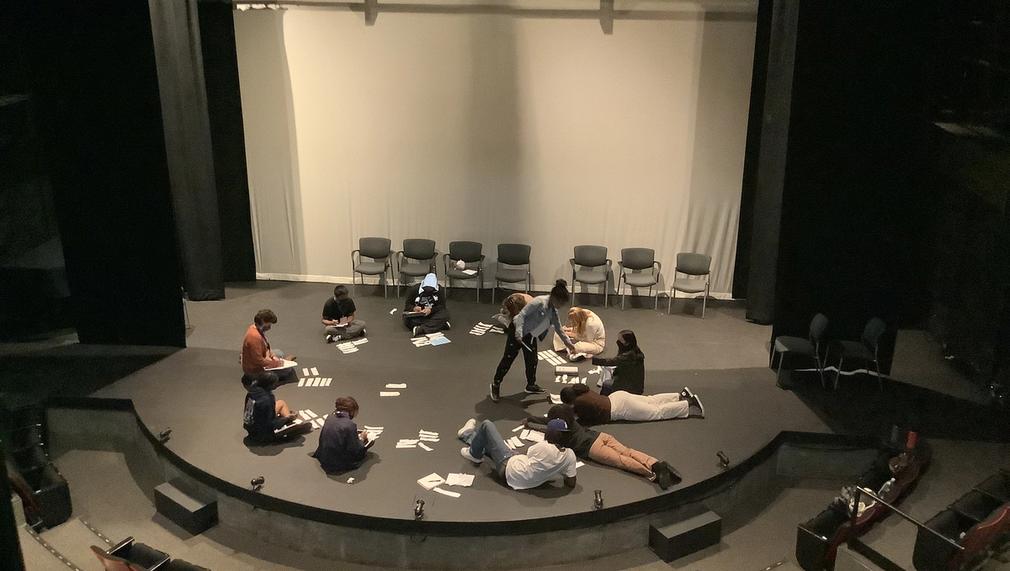Youth Development Theatre Administration Pipeline
Boston Court Pasadena is expanding its internship program, having it take place throughout the year. The program will be 10 weeks, with an increase in positions from six to nine. Each cohort of students will work on a variety of productions and events, teaching students transferable skills such as project management, giving students autonomy, and encouraging accountability, which is not often granted in entry-level positions. It also creates a pipeline for cultural producers and administrators that the performing arts sector yearns to have.

What is the primary issue area that your application will impact?
Access to tech and creative industry employment
In what stage of innovation is this project, program, or initiative?
Expand existing project, program, or initiative (expanding and continuing ongoing, successful work)
What is your understanding of the issue that you are seeking to address?
While Los Angeles is seen as an entertainment hub, securing employment can be difficult for groups that are seen as traditionally underrepresented. In addition, the theatre industry severely lacks administrative internship programming targeted to BIPOC youth. By providing internships and professional development opportunities, we believe that this can be rectified. In addition, theatre patron demographics are skewed. A majority of BCP's patrons are ages 45-74 (57%). As of 2019, 25% of the audience identified as BIPOC, 15% as Spanish, Hispanic, or Latino, and 20% reported a household income of under $50,000. BCP is actively working to diversify its audience, artists, and staff. Before the pandemic, 50% of BCP theatre productions were written by women, and 36% were written by people of color, while actors of color or disabled actors comprised 63% of casts. In 2022, BCP formalized this commitment to ensure BIPOC artists would comprise at least 50% of artists across the season each year.
Describe the project, program, or initiative this grant will support to address the issue.
As an award-winning, intimate performing arts center based in Pasadena, we must cultivate and train the next generation of arts administrators and cultural practitioners in California. One of the main ways BCP’s internship program is a commitment to and represents the communities to be served is that it is our own, independently run internship program. Most non-profit theatre organizations cannot run their own internship program due to capacity and funding. Because we believe in treating our interns equally as our staff, they must be paid for their time and assigned to mentors. We also let our interns know that the executive team is available should there be any issues they cannot speak to their mentor about. They are also there to provide a wealth of information and resources if they have questions about their position and what it means to be an executive leader. Another aspect of our internship that is unique is that the low hour commitment allows for students to be flexible. With only 80 hours required throughout the 10 weeks, we know they juggle school, work, and personal life outside of the internship. Lastly, due to our diverse staff and our commitment to anti-racism, we want our students to feel safe in our space.
Describe how Los Angeles County will be different if your work is successful.
BCP’s internship program is targeted towards ages 18 to 25 years old. While it’s open to students in Los Angeles, we encourage students from the Pasadena area and San Gabriel Valley to apply. We also emphasize that students from BIPOC backgrounds and underserved communities should apply, regardless of theatre experience. We believe this is important as this is still a predominantly white field. A study done by Theatre for Young Audiences in partnership with the Center for Scholars and Storytellers found that only 7% of non-culturally specific productions were directed by people of color, whereas people of color directed 40% of culturally specific productions. As it is BCP’s mission to reflect the diverse landscape of Los Angeles more accurately and to practice equity and inclusion, we need to display and practice this in our hiring practices.
What evidence do you have that this project, program, or initiative is or will be successful, and how will you define and measure success?
Impact is measured with the following objectives:
Integrate theory into practice. Assess interests and abilities in their field of study.
Develop an appreciation for the arts and its economic function.
Develop work habits and attitudes necessary for job success.
Develop communication, interpersonal, and other critical skills in the job interview process.
Build a record of work experience.
Acquire employment contacts leading directly to a full-time job following graduation from college.
Identify, write down, and carry out performance objectives aligning with the department they are interning.
Outcome, fulfillment, and tracking will be measured by sharing constructive criticism and feedback. There will be an objective fulfillment check-in at or around the 40-hour (halfway) mark and at the conclusion of their internship. In the past, we have hired a previous interninto a full-time administrative position, and others as crew members and front of house.
Approximately how many people will be impacted by this project, program, or initiative?
Direct Impact: 30.0
Indirect Impact: 200.0